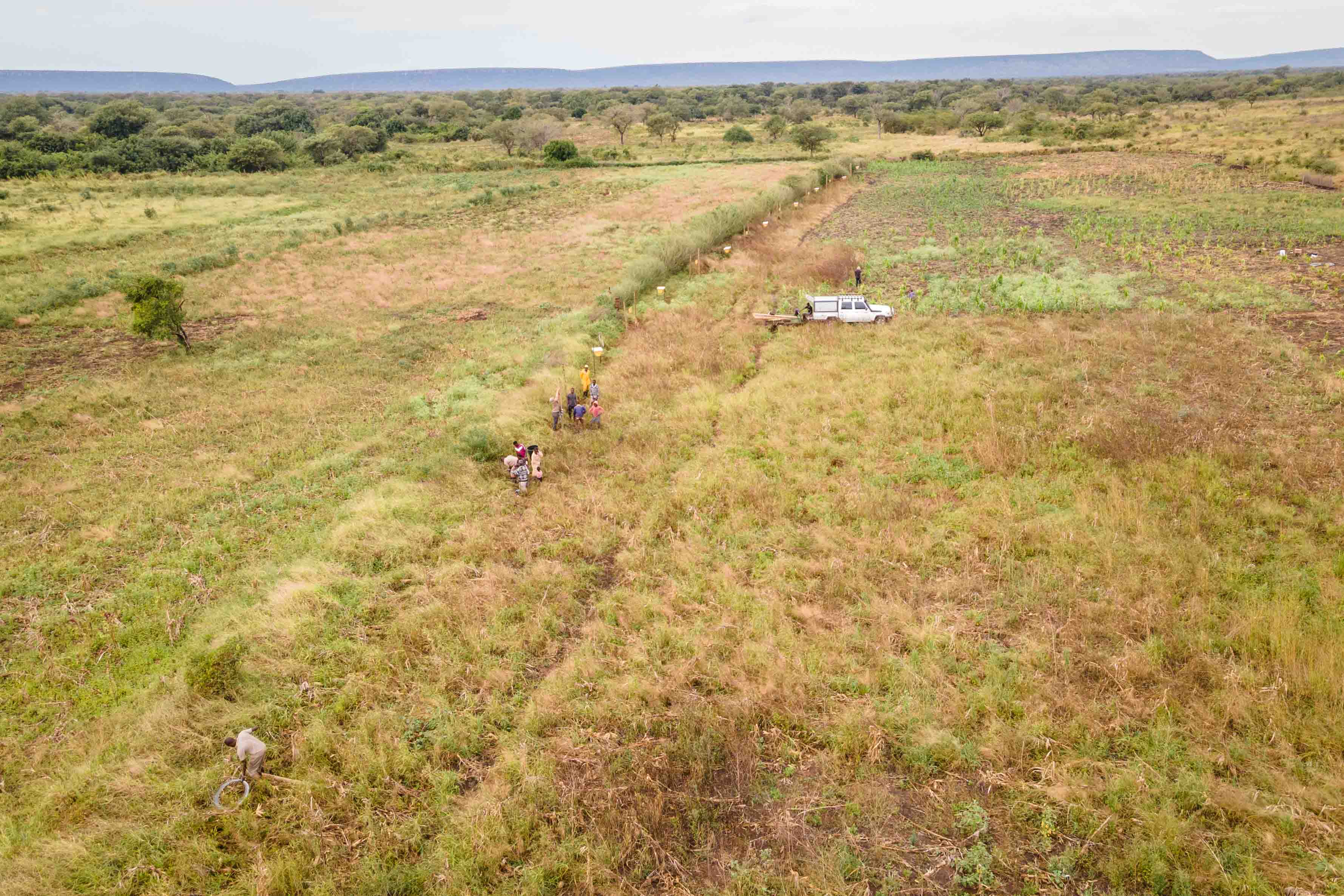

En mayo de 2023, el equipo de Elephants Alive (EA) se embarcó en una misión de implementación de una barrera contra el conflicto entre humanos y elefantes en el valle de Namaacha, en el sur de Mozambique. EA y Mozambique Wildlife Allience (MWA), así como delegados de Save The Elephants (Kenia) y PAMS Foundation (Tanzania), se reunieron en un inspirador ejercicio de cooperación para implementar una barrera blanda de mitigación de 4 vías para proteger tres campos de cultivo. Los campos habían sido identificados, mediante investigación de campo y datos de rastreo por GPS, como de alto riesgo para el robo de cultivos por elefantes. Un lado de la valla se construyó colgando colmenas. Cuando las colmenas empiecen a estar ocupadas por enjambres silvestres, seguiremos formando a los agricultores locales sobre cómo mantener sanas las colmenas y las colonias, evaluando las estructuras de los cuadros y comprobando si las abejas tienen suficiente polen para producir miel. Estos conocimientos permitirán a los agricultores aumentar la producción de sus cultivos, protegerlos de los elefantes hambrientos y complementar sus ingresos con la venta de miel. El segundo lado de la valla estaba formado por tiras metálicas, cuyo ruido y visión han demostrado disuadir a los elefantes de irrumpir en los campos de los agricultores. Colocamos trapos de guindilla en el tercer lado de la valla. El cuarto lado de la valla blanda estaba formado por luces intermitentes, una técnica utilizada con éxito en Botsuana.
- Cada método de mitigación se aplica y mantiene adecuadamente.
- Tras una formación apícola exhaustiva y el establecimiento de un sistema de vigilancia, se mantendrá el cercado de las colmenas.
- Las colonias de abejas tienen suficientes recursos disponibles para evitar que las colonias se escapen de las colmenas.
- Gran interés de la comunidad. Esto se vio facilitado por el éxito anterior de las Unidades de Respuesta Rápida a la hora de disuadir a los elefantes de asaltar los cultivos.
- Acceso a recursos para mantener las barreras blandas.
- Seguimiento de los incidentes de incursión de elefantes en los cultivos mediante informes de campo y datos GPS.
Todas las barreras resistieron bien a pesar de que dos elefantes con collar se acercaron en el primer mes. Los días 15 y 16 de junio, una manada de solteros irrumpió en las colmenas desocupadas. Irrumpieron en los trapos de guindillas, ya que no habían sido refrescados como se les había enseñado. Nos hemos comunicado con el jefe, que ahora ve la importancia de la rutina de refrescar los trapos de chile. Desde entonces ha recogido más chile y aceite de motor para volver a aplicarlos. Hemos dado instrucciones para que el repelente de elefantes maloliente se cuelgue a intervalos regulares de las vallas de las colmenas. La comunidad ha informado de que los elefantes evitan las luces intermitentes, así que en nuestro próximo viaje pondremos luces intermitentes a intervalos regulares hasta que el verano traiga una mayor ocupación de las colmenas. El transporte entre las parcelas y el almacén de suministros es complicado. La distancia en línea recta es de 5 km, pero no disponemos de vehículos. En nuestro próximo viaje, se levantará una torre de vigilancia más cerca de las parcelas, cuya base se convertirá en almacén. El miembro responsable del personal de Mozambique Wildlife Alliance también ha obtenido un permiso de conducir para poder transportar suministros cuando sea necesario.